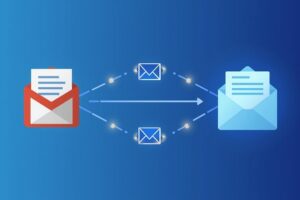To begin with, in today’s digital space, it’s important to keep your data secure and activate privacy protection. You can protect yourself online from unauthorized access by making a few simple modifications to your devices and accounts. The better way is to safeguard your privacy from people with whom you don’t want to share your information.
There are various ways to track online activities like physical tracking, virtual, etc. Hackers can see our personal data, passwords, location, etc. In this article, we will give you some ideas and recommendations on how to preserve your privacy online. It will allow you to keep control of your financial and personal information.

Table of Contents
Limit the Sharing of Personal Information
So, how can you protect your privacy? Never ever share your private data or information on social media. Posting too much information on social media sites like Facebook, Twitter, and Instagram can make it simpler for cybercriminals to get identifying information, allowing them to steal your identity or access your financial information.
For instance, can an identity thief, use your Facebook account to find out what your high school mascot is or your mother’s maiden name? Usually, this type of information is an alternate password on financial accounts as security questions.
To protect your online personal data, what information you shouldn’t share online? Well, first in your social media profiles, skip the “About Me” fields. You are not need to disclose your birth year or location, which could make you a more attractive target for identity theft. Also, experiment with various privacy settings. You might wish to limit who can see your postings to persons you’ve invited individually.
Browse on Private Mode
Do your web surfing in private mode if you don’t want your computer to save your browsing history, temporary internet files, or cookies. Today’s web browsers have their own types of privacy protection known as Incognito Mode in Chrome it’s like browser VPN chrome.
Others won’t be able to track your browsing history from your machine if you search with these options enabled. However, these private modes aren’t entirely private. Your Internet Service Provider (ISP) can still observe your surfing behavior even if you’re searching in incognito mode. If you’re searching on a corporate computer, your boss can see your activities or many websites can track you easily.
So, yeah, browsing incognito has some advantages. However, it is far from the only available tool to help you maintain your online privacy. Search engines that are anonymous and virtual private networks can help you protect your online privacy.
Use a Virtual Private Network (VPN)

A virtual private network VPN creates a private network from a public internet connection, giving you online privacy and anonymous IP. VPNs conceal your IP address, making your online activities almost untraceable.
When using public Wi-Fi at a library, coffee shop, or other public areas, a VPN addon is very crucial. Cybercriminals will have a harder time breaching your online privacy to your personal information if you use a VPN.
Many free VPN services are available, but if you want the most privacy protection when online it may be more cost-effective to pay for a service from a reputable security company.
Be Careful Where You Click
Phishing attempts are one of the ways that hackers breach your online privacy. Scammers use phishing to deceive you into disclosing sensitive financial or personal information. They frequently accomplish this by sending telephonic emails purporting to be from banks, credit card companies, or other financial institutions. These emails frequently instruct you to click a link and verify your financial details in order to prevent your account from being frozen or terminated.
So, how do I keep personal information private? First of all, don’t fall for any sort of scam. If you click on a phishing link, you may be led to a faked website that looks like a bank or financial institution’s homepage. However, you will be giving your account information to the criminals behind the phishing effort.
Hover your cursor over suspicious links to see the destination URL before clicking. Don’t click if it doesn’t match the financial website you use. Also, keep in mind that banks and other financial institutions would never request account or financial information by email. If you receive such an email and are concerned, go to your financial provider’s online account site and log in.
Final Thoughts
Indeed, you must believe that your personal data needs protection before engaging in online activities. Many businesses practice data protection to show their customers and users that they trust them with their personal information. Most of them use anonymous IP for privacy-protection and keeping hackers away. Ideal way to get an anonymous IP is from VeePN.
A virtual private network (VPN) creates a secure connection between you and the internet. All of your data traffic is routed over an encrypted virtual tunnel via the VPN. When you access the internet, this masks your IP address, making its location invisible to all. VPN can also protect your system and data from external attacks.



